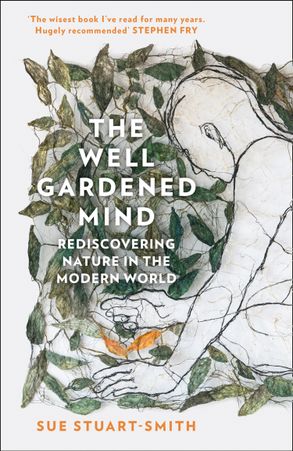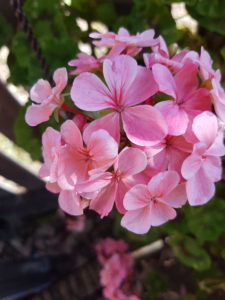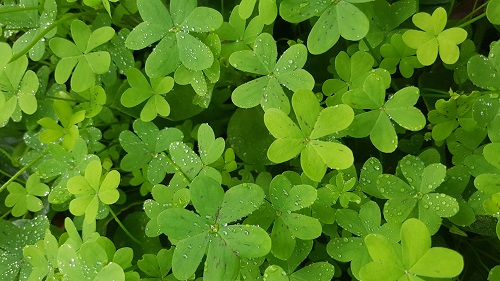 I discovered the pleasure of wandering through the garden with a free-floating attention, registering how the plants were changing, growing, ailing, fruiting. Gradually I thought about mundane tasks such as weeding, hoeing, and watering changed; I came to see that it is important not so much to get them done, but to let oneself be fully involved in the doing of them.
I discovered the pleasure of wandering through the garden with a free-floating attention, registering how the plants were changing, growing, ailing, fruiting. Gradually I thought about mundane tasks such as weeding, hoeing, and watering changed; I came to see that it is important not so much to get them done, but to let oneself be fully involved in the doing of them.
What a gem this book is. A wise and gentle guide, psychiatrist and psychotherapist Sue Stuart-Smith walks the reader through the ways in which a garden – being in it, working in it, looking at it, even just thinking about it – can bring healing and solace. Whether people are struggling with trauma, addiction, incarceration, ill health and hospitalisation, stress, mental illness or grief, there are multiple reasons why a garden can be therapy, medicine and a life-enhancing and life-affirming joy.
Stuart-Smith combines research in neuroscience and psychology, personal anecdotes and stories, literature, history and anthropology with lyrical description to prove her point. Garden schemes in prisons, institutions, hospitals and with veterans, refugees, the aged and at-risk young people came as no surprise, but I had no idea that soldiers, chaplains, doctors and nurses on both sides on the Western Front in WWI created ‘dugout gardens’.
 They grew vegetables – enough to make some areas self-sufficient in fresh produce. But they also grew flowers. Families sent seeds; one British officer sowed nasturtiums, marigolds, poppies and stocks under cover of darkness.
They grew vegetables – enough to make some areas self-sufficient in fresh produce. But they also grew flowers. Families sent seeds; one British officer sowed nasturtiums, marigolds, poppies and stocks under cover of darkness.
What feels homely, what gives hope, what strikes the eye as beautiful, are all dependent on the surroundings in which we find ourselves. Cultivating the earth in the context of a battlefield throws the power of the garden into sharp relief and when so much is beyond repair, to be able to change something for the better is extremely important.
I don’t need convincing. The garden is my ‘happy place’. We don’t live in a battlefield, but at times it feels like it. The constant barrage of bad news and the low-level sadness and anxiety it engenders needs some kind of balance. For me it’s found in planting, pottering, weeding; in planning and dreaming; in standing still to look at new growth or emerging blooms or the birds enticed to the shrubs and trees by berries, fruit or nectar. The seasonal cycles – even the pesky weed oxalis that blankets everything in winter – remind me that ‘this too shall pass’. If I could live in the garden, I wouldn’t have to take medication for high blood pressure! And if I feel that my garden helps me to escape from reality, it also brings me back.
In this era of virtual worlds and fake facts, the garden brings us back to reality. Not the kind of reality that is known and predictable, for the garden always surprises us and in it we can experience a different kind of knowing – one that is sensory and physical, and stimulates the emotional, spiritual and cognitive aspects of our being. Gardening is, in this sense, simultaneously ancient and modern. Ancient because of the evolutionary fit between brain and nature, and also ancient as a way of life between foraging and farming, that expresses our deeply inscribed need to attach to place. Modern, because the garden is intrinsically forward looking and the gardener is always aiming for a better future.


This sounds like your perfect book, Susan 🙂